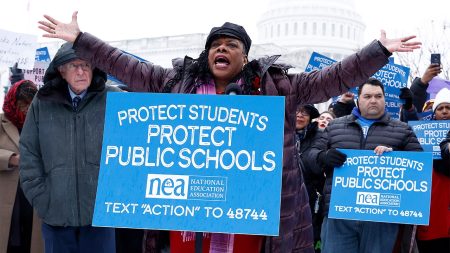Terror Returns to Pakistan’s Capital: Inside the Islamabad Courthouse Attack
In a stark reminder that no place remains immune to terrorism, Pakistan’s capital city experienced its first major assault in over a decade when armed militants stormed a courthouse complex in Islamabad. The brazen attack shattered the relative calm that had settled over the federal capital, catching security forces off guard and sending shockwaves through a nation already grappling with a recent surge in extremist violence. As investigators piece together how assailants penetrated multiple security layers to strike at the heart of the judicial system, the incident raises troubling questions about the resurgence of militant capabilities and the efficacy of Pakistan’s counter-terrorism apparatus. This attack marks a significant escalation in the security challenges facing Pakistan, potentially signaling a new phase in the country’s long and complicated battle against extremism.
A Decade of Relative Peace Shattered
For more than ten years, Islamabad had been spared the kind of high-profile terrorist incidents that periodically struck other major Pakistani cities like Karachi, Lahore, and Peshawar. This period of relative stability followed intensive counter-terrorism operations launched in the mid-2010s, which had pushed militant groups away from urban centers and disrupted their operational capabilities. “The capital had enjoyed what many security analysts considered a security dividend,” explains Zahid Hussain, a security analyst who has extensively documented Pakistan’s struggle with extremism. “Major government buildings, diplomatic enclaves, and judicial complexes were heavily guarded, creating a sense that Islamabad existed in a protected bubble compared to other parts of the country.” The courthouse attack has now punctured that illusion, demonstrating that militant groups have potentially reconstituted their networks sufficiently to strike even the most secure locations in Pakistan.
The attack’s timing appears particularly significant, coming amid escalating tensions along the Afghanistan-Pakistan border and growing concerns about the resurgence of the Tehrik-i-Taliban Pakistan (TTP), a group that has historical ties to the Afghan Taliban but focuses its violent campaign within Pakistan. According to security officials speaking on condition of anonymity, intelligence agencies had detected increased chatter among militant networks in recent weeks, though specific threats against judicial targets had not been identified. “What makes this incident particularly alarming is not just that it happened, but that it targeted a symbol of the state’s authority,” notes Amir Rana, director of the Pakistan Institute for Peace Studies. “By attacking a courthouse, the militants are directly challenging Pakistan’s legal and constitutional framework, suggesting a strategic shift in their targeting priorities.”
Anatomy of the Assault: How It Unfolded
The attack began during peak morning hours when the courthouse complex was bustling with lawyers, litigants, and judicial staff. According to eyewitness accounts and preliminary official statements, multiple attackers disguised as litigants managed to circumvent the security checkpoints, possibly with insider assistance. “I was presenting arguments in Court Room 3 when we heard the first explosions,” recounts Fahad Ahmed, a lawyer who was present during the attack. “Initially, there was confusion rather than panic—we’ve become so unaccustomed to such violence in Islamabad that many people didn’t immediately recognize the sounds as an attack.” This momentary confusion gave the assailants critical minutes to execute their plan, which appeared to involve both targeted shootings and indiscriminate fire designed to maximize casualties.
Security forces responded within minutes, engaging the attackers in a firefight that lasted nearly two hours. Counter-terrorism units cordoned off the area while emergency services evacuated the wounded, many of whom suffered life-threatening injuries. “The response was professional but clearly caught by surprise,” observes former military officer and security consultant Brigadier (Ret.) Mohammad Saad. “The attackers had clearly studied the security protocols and identified vulnerabilities in the courthouse’s defense perimeter.” The death toll—including judicial officers, lawyers, and security personnel—makes this one of the deadliest attacks in the capital’s history. While officials have not released the identities of the attackers, preliminary forensic evidence suggests they had received sophisticated training in weapons handling and tactical coordination, hallmarks of established terrorist organizations rather than lone-wolf operatives.
Broader Security Implications for Pakistan
The Islamabad courthouse attack represents more than just a security breach; it signals potential shifts in Pakistan’s internal security landscape that could have far-reaching consequences. The attack comes amid growing concerns about the deteriorating security situation in neighboring Afghanistan following the Taliban’s return to power. Security experts have long warned that the Taliban’s victory could embolden affiliated groups like the TTP, providing them with safe havens from which to launch operations into Pakistan. “What we’re potentially witnessing is the spillover effect that many regional security analysts predicted,” explains Dr. Ayesha Siddiqa, a research associate at SOAS University of London who specializes in Pakistani military affairs. “The permissive environment in Afghanistan has allowed militant groups to reconstitute, retrain, and plan operations with relative impunity.”
The attack also reveals potential intelligence failures that will likely prompt a reassessment of Pakistan’s counter-terrorism strategy. For years, the country had invested heavily in developing sophisticated intelligence networks to identify and disrupt terrorist plots before they materialized. The success of these efforts had been reflected in the significant decrease in high-profile attacks, particularly in major urban centers. However, this incident suggests that militant groups may have adapted their operational security to evade detection. “Terrorist organizations are learning entities,” notes Hassan Abbas, a former Pakistani government official and author of several books on extremism in South Asia. “They study security protocols, identify weaknesses, and modify their tactics accordingly. What’s concerning about this attack is the level of planning and operational security it demonstrates—the attackers managed to conduct reconnaissance, acquire weapons, and execute their plan without triggering any early warning systems.”
International Reactions and Regional Consequences
The international community has responded to the Islamabad courthouse attack with widespread condemnation and expressions of solidarity. The United Nations Secretary-General issued a statement denouncing the violence and reaffirming the UN’s support for Pakistan’s counter-terrorism efforts. Similarly, representatives from the United States, China, and the European Union have offered assistance in the investigation, recognizing that terrorism remains a shared global threat. “Pakistan’s struggle against extremism is not isolated from broader regional security dynamics,” observes Michael Kugelman, South Asia expert at the Wilson Center. “What happens in Pakistan has implications for stability across South Asia and beyond, particularly given the country’s nuclear status and its strategic location at the crossroads of Central and South Asia.”
The attack may also complicate Pakistan’s already tense relationship with the Taliban regime in Afghanistan. Pakistani officials have repeatedly called on the Taliban government to prevent Afghan territory from being used for launching attacks against Pakistan, a demand that has largely gone unheeded. Following the courthouse attack, Pakistan’s foreign ministry issued a strongly worded statement implying that the attackers may have ties to groups operating from Afghan soil. “Pakistan finds itself in a difficult position,” explains Elizabeth Threlkeld, director of the South Asia Program at the Stimson Center. “It was among the first countries to engage with the Taliban after they returned to power, hoping that pragmatic relations would give Pakistan leverage to address security concerns. This attack suggests that such engagement has not yielded the desired security dividends.” The possibility that the attackers received support or sanctuary in Afghanistan could lead to increased cross-border operations by Pakistani security forces, raising the specter of regional escalation.
Moving Forward: Pakistan’s Counter-Terrorism Challenge
As Pakistan absorbs the shock of the Islamabad courthouse attack, attention is turning to how the country will respond to this renewed security challenge. Prime Minister Shehbaz Sharif has convened an emergency meeting of the National Security Committee, bringing together civilian leadership and military commanders to review the security situation and coordinate response strategies. “The immediate challenge is to determine whether this attack represents an isolated incident or the beginning of a new campaign of violence,” says retired Lieutenant General Talat Masood, a defense analyst who has closely followed Pakistan’s security evolution. “The investigation will need to establish not just who carried out the attack, but who provided logistical support, funding, and intelligence.”
Security has been significantly enhanced across major urban centers, with additional checkpoints established and paramilitary forces deployed to protect sensitive installations. Intelligence agencies have reportedly launched nationwide operations targeting suspected militant sleeper cells and support networks. However, security experts caution that tactical responses alone will not address the underlying challenges. “Pakistan needs a comprehensive counter-terrorism strategy that combines kinetic operations with efforts to address radicalization and extremist ideologies,” argues Moeed Yusuf, former National Security Advisor to the Pakistani government. “This includes reforming the education system, regulating religious seminaries that often serve as recruiting grounds for militants, and providing economic opportunities in regions vulnerable to extremist influence.” The Islamabad courthouse attack serves as a sobering reminder that despite significant progress in recent years, Pakistan’s battle against extremism remains unfinished. How effectively the country responds to this latest challenge will determine whether the attack represents a temporary setback or the beginning of a dangerous new chapter in Pakistan’s long struggle with terrorism.










